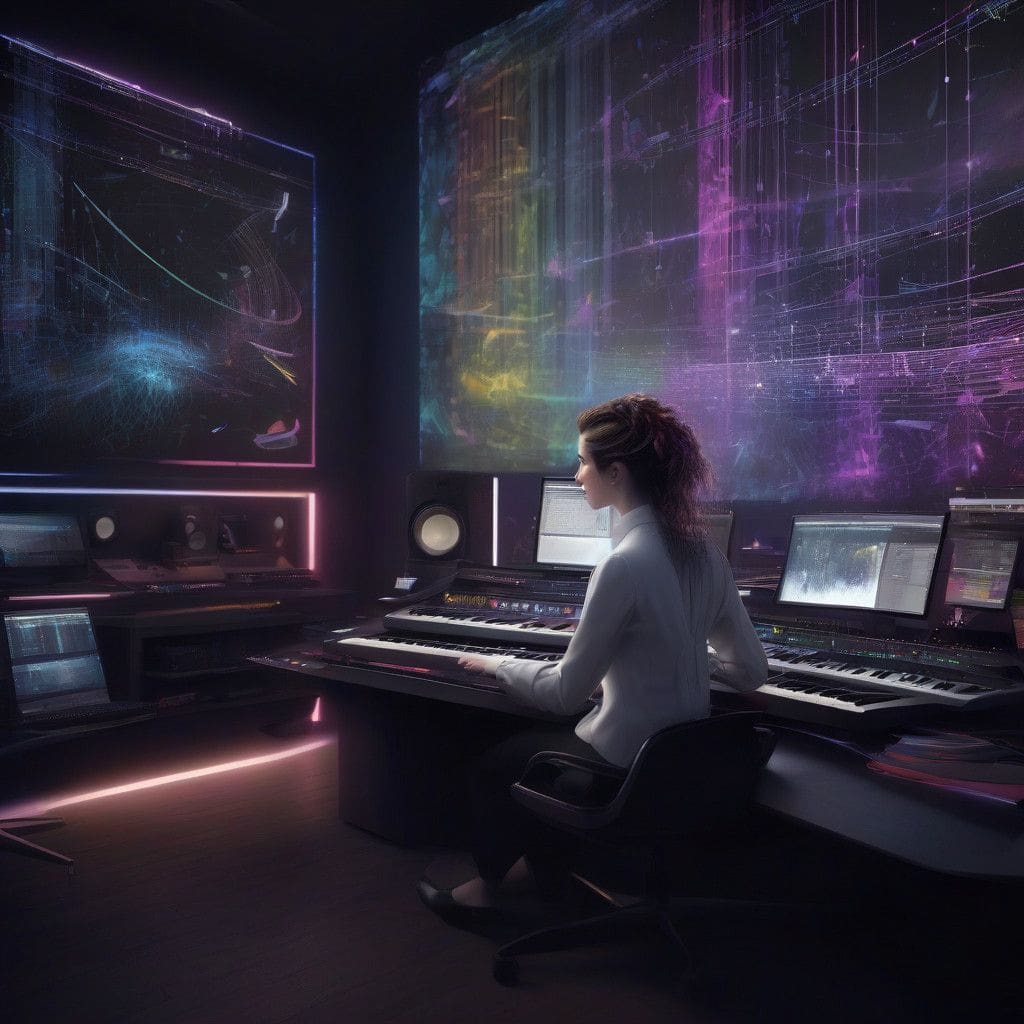Innovative musician Imogen Heap is pushing the boundaries of music and technology with her latest project—a digital twin named Mogen. This AI-powered creation is a significant leap forward, utilizing years of Heap’s vocal and musical data to replicate her voice, personality, and creative approaches. What started as a means to interact with fans is evolving into a transformative tool that could redefine how music is created and performed.
Mogen is not merely a digital assistant; Heap envisions it as a collaborative partner that enhances her artistic workflow and creative decision-making. During live performances, Mogen can analyze biometric and atmospheric data in real time, creating hyperreal and immersive experiences for the audience. This level of interaction between the artist, AI, and fans is groundbreaking and promises to open new avenues for artistic expression.
Heap’s project comes on the heels of growing AI adoption in the music industry. According to recent surveys, around 25% of music producers are integrating AI into their workflows. This trend signifies a marked shift in how music is produced, composited, and performed, reflecting the potential AI has to revolutionize various artistic processes.
Heap notes that the integration of AI like Mogen can lead to ethically sound collaborations, where technology aids rather than replaces human creativity. She is well aware of the implications of utilizing AI, but her understanding of the technology empowers her to navigate the potential pitfalls. Similar to her innovative use of vocoders in the past, she believes that AI can not only enhance the creative process but also make it more inclusive and accessible.
A prime example of Mogen’s capabilities can be illustrated through Heap’s live shows. Imagine a concert where the music evolves based on audience reactions and environmental cues. As fans engage with the performance, Mogen could analyze their emotional responses, tailoring the experience accordingly. By merging personal data with artistic expression, Heap aims to elevate the concert experience to unprecedented heights.
Heap’s commitment to ethical standards in AI application is particularly noteworthy. While concerns about AI replacing human jobs are valid, she argues that AI should serve as a tool for artists rather than a substitute. The ability for an artist to collaborate with a digital version of themselves allows for a new dimension of creativity, enhancing their ability to connect with fans and reach new audiences.
Moreover, this initiative is part of a broader trend in the music industry where technology is increasingly leveraged to enhance creativity rather than stifle it. For instance, notable musicians and producers are incorporating AI to analyze composition styles or generate new melodies, utilizing the technology to augment their unique voices rather than replace them. The successful integration of AI in these contexts reflects an industry-wide shift towards a hybrid model of musical creation.
As Heap progresses with this project, the anticipation surrounding AI in music continues to grow. Both enthusiasts and critics are eager to see the results of Mogen’s integration in real-world scenarios and how it shapes future musical endeavors.
In conclusion, Imogen Heap is positioned at the forefront of a revolution in the music industry, where AI is not just a buzzword but a dynamic tool reshaping how music is produced and consumed. Her commitment to maintaining ethical standards in AI application ensures that the human aspect of creativity remains intact while allowing for technological innovation.
As artists like Heap continue to explore the intersection of music and technology, the future promises exciting developments, paving the way for a new era of artistic collaboration that blends human creativity with the capabilities of artificial intelligence.











